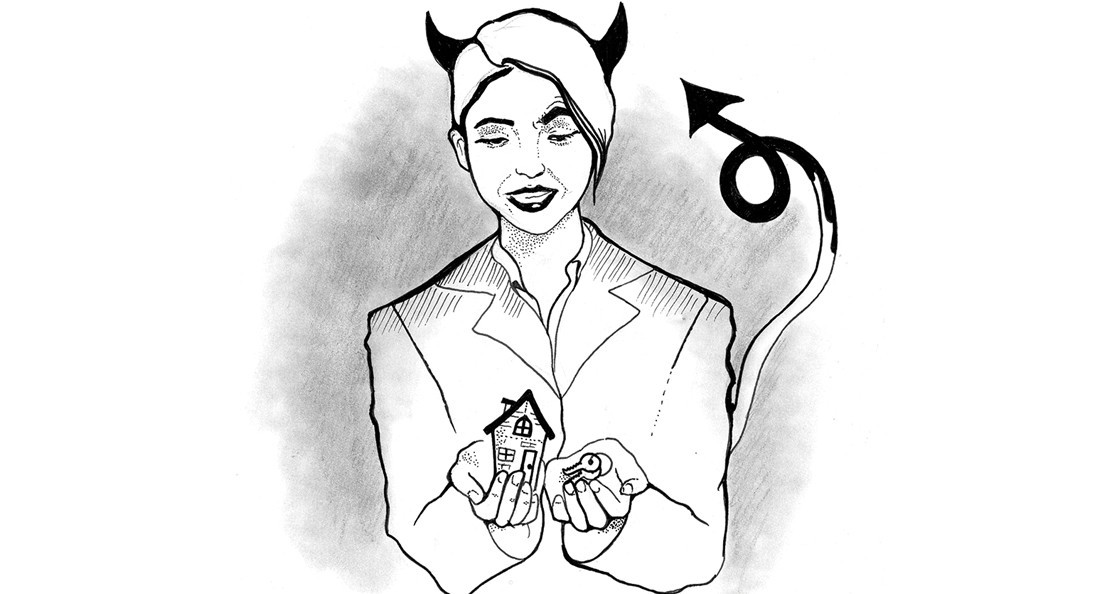Know your rental rights
Tips from Manitoba’s Residential Tenancy Branch
September is a busy month for renters and landlords in Winnipeg, with an influx of out-of-province students, folks returning from summer jobs outside of the city and first-time renters moving out of their childhood homes.
Stressed or inexperienced renters may find themselves lost in the complexities of leases, landlords and tenancy rights.
Rachel R. (whose last name has been withheld for privacy concerns) knows the struggles of learning rental rights well. When the first house she rented got bed bugs, it became “a huge ordeal and a huge stress, because the landlord would try to not actually do the amount of treatments he should have, and was kind of acting like it was our fault and we should pay for it, even though it was his responsibility.”
“It was just like a weird ... unhealthy relationship with the landlord, I think,” Rachel says. “My roommates would just call different people and find out what our rights are with this, what we need to expect from our landlord, whose responsibility is whose. But if you don’t know any of that, it’s kind of just like, I guess this is all your fault and your responsibility.”
Rachel suggested that more accessible resources and more standardized rental contracts might make it easier for first-time renters to better navigate Winnipeg’s rental scene.
For those who are starting the season with a new lease, Manitoba’s Residential Tenancy Branch (RTB) has some guidelines and tips for safe and responsible renting.
Landlords are responsible for the condition of the rental unit, and if there are recurring maintenance, safety or pest issues, a renter is allowed to complain about it and find resources for taking action on the RTB website.
Filling out a Rental Unit Conditions Report with the landlord before moving in is a good way to ensure that landlords and tenants are being honest about the state of the unit.
According to the RTB’s website, this “written, detailed description of the condition of a rental unit when the tenant moves in and out” protects the interests of both renting parties and ensures that damage claims are accurate.
If it’s financially feasible, the RTB suggests tenants' insurance as a good option to ensure that damages to renter’s property and the landlord’s property are clear.
The RTB’s website says “most people think their personal belongings aren’t worth much and don’t bother with tenant insurance. But if something happens and you have to replace everything at once, the cost can be huge.”
Not paying rent is grounds for eviction, but if a renter’s bank account fluctuates on an unusual schedule, they may be able to find a payment schedule that works with it. The RTB highlights that there are rent agreements that rely on weekly or yearly payments, and so long as a payment date is consistent, it can be tied to any day of the week, month or year.
Tenants also have rights when it comes to rent increases.
According to the RTB’s website, there is a “rent increase guideline,” which limits how much landlords are allowed to increase rent without needing approval from the RTB. Tenants can appeal the increase to the RTB even if the increase is lower than the guideline. Tenants must be given at least three months notice before an increase.
And if things go sour, going through complaint, lease termination or eviction processes as by-the-books as possible is important. Disputes between landlords and tenants can become costly very quickly if they aren’t fully resolved and documented.
To evaluate a rental situation or seek help with tenancy issues, contact the Manitoba Residential Tenancy Branch at 1-800-782-8403. While the RTB is useful for dealing directly with landlords, community tenancy advocacy groups and organizations like Resource Assistance for Youth, Inc, which serves people under 29, and Winnipeg Rent Net offer supports for finding and maintaining healthy rental relationships.
Published in Volume 73, Number 1 of The Uniter (September 6, 2018)








